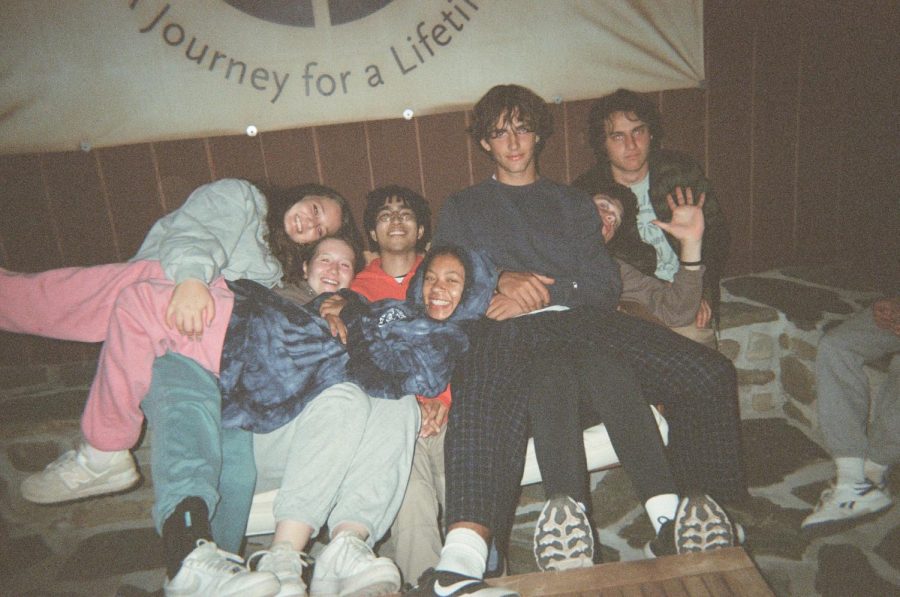Peer Support retreat kicks off 2021-22 program
Printed with permission of Eliza Koblentz
From left to right: Peer Support Leaders and Trainees Lily Saada ’22, Eliza Koblentz ’23, Alec Rosenthal ’22, Sophia Haynes ’22, Henry Wendorf ’23, Will Sherwood ’23 and Harry Tarses ’23 relax in their pajamas before going to sleep. The Peer Support retreat is one of the few overnight trips the school has authorized since the pandemic.
September 18, 2021
Peer Support leaders and trainees participated in a bonding retreat at Camp Ramah from Sept. 10 to 12. This marked the program’s first overnight trip since COVID-19 moved the group meetings to Zoom. Students spent the weekend climbing ropes courses, engaging in a costume party and racing team-built boats with the intentions of teamwork and growth.
Trainee Lily Weisskopf ’23 said that she’s grateful for the safe and open space Peer Support provides and is glad she attended the retreat.
“I think it was such a great privilege and experience,” Weisskopf said. “We got to bond and work alongside peers not only in our grade but also in the senior class. This was especially unique since we don’t have retreats at the Upper School [as] we did at the Middle School.”
Senior Leader Kate Hassett ’22 said after the year of virtual retreats and meetings she is eager to return to in-person Peer Support meetings. Hassett said she was able to interact with her junior co-leaders in a more intimate way as well as strengthen friendships with those she hadn’t seen over the pandemic. Now, Hassett says she can’t wait to further these bonds at school and in group meetings.
“The retreat was very inspiring, and I admired how vulnerable and open everyone was,” Hassett said. “I’m really looking forward to meeting at school because that’s a different kind of vibe. The bond becomes stronger when you’re face to face. I really love that and I can’t wait to experience that again.”
Coordinators Prentiss Corbin ’22, Estee Eidinger ’22, Milo Kiddugavu ’22 and Michael Lapin ’22 said they spent their weekend working on activities with friends as well as delegating leaders and trainees to their groups. Coordinators facilitated lighthearted games, larger discussions on program rules and bonding exercises. Corbin said while the transition from virtual to physical peer support experience was daunting, she was grateful for the change and is confident in her peers’ leadership abilities.
“To say my nerves went flying out the door would be an understatement,” Corbin said. “I quickly realized that I had underestimated the true star power that all the leaders and trainees have. Everyone was super enthusiastic and willing to put their all into the retreat. My expectations were blown away, and this year I really want to make Peer Support a success for as many people as I can. I have watched so many of my peers and myself reap the benefits of the program and I would hate for anyone to miss out on that.”































